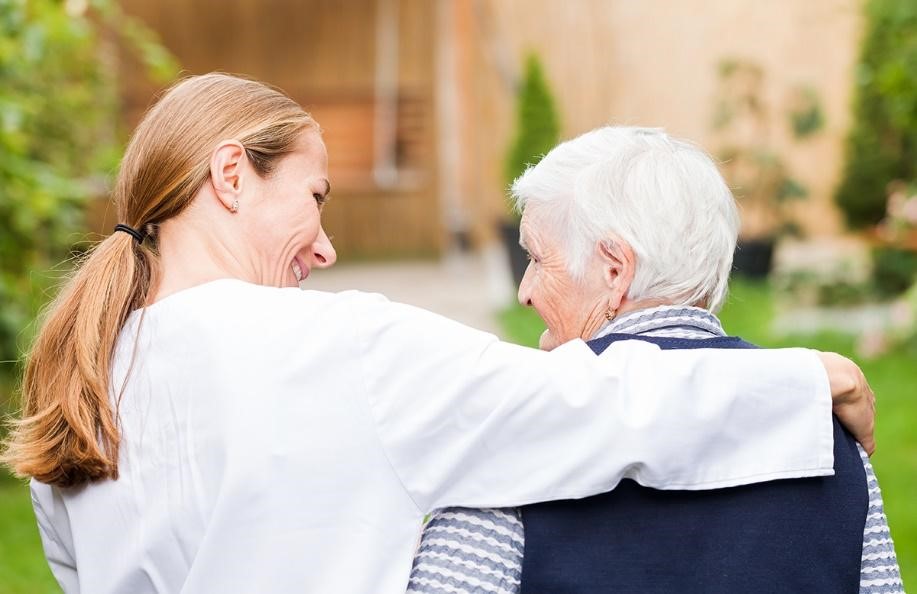
6 Common Scams That Target Seniors
Seniors make prime targets for scam artists for several reasons. They tend to be less familiar with technology and appropriate security measures, so they may be vulnerable to email scams or internet fraud. They also grew up in an era where people were more trusting and they may be dealing with declining mental ability, both of which make them more likely to believe what a scammer tells them. If they do fall victim to a scam, they may be too embarrassed to tell anyone or they may fear a loss of independence if they admit they lost money to a fraudulent scheme.
Below are some of the most common scams aimed at seniors:
- Medicare or Health Insurance Scams. Your loved one may receive a phone call from someone claiming to be a Medicare representative. The scammer will ask for personal information such as a social security number and then attempt to bill Medicare for fraudulent services. Remember that Medicare will never call to ask for personal information, and it is illegal to sell Medicare services door-to-door.
- Counterfeit Prescription Services. Shopping for prescription drugs online to save money seems like a good idea, but beware of scammers who sell fake drugs to make a quick buck. Not only will these drugs not work as intended, but they may cause severe side effects or interactions with other medication. The FBI warns consumers to be mindful of the size and shape of each medication they take, and to contact a pharmacist or doctor if the pill doesn’t look like it should.
- Funeral or Cemetery Scams. It’s easy to set aside critical analysis skills when you have recently lost a spouse or loved one. Scammers sometimes take advantage of grieving seniors by claiming the deceased spouse owed a debt, and then trying to extort money. Unscrupulous funeral homes may also try to squeeze more money out of families by adding unnecessary charges to the bill or insisting on the most expensive options.
- Grandparent Scam. This scam plays off a grandparent’s emotions by calling them and claiming to be a grandchild who is in legal or financial trouble. The scammer may ask for a wire transfer or gift cards, or they may ask the elderly person to send cash through the mail. The best way to avoid this scam is to call the grandchild back on a known phone number and verify whether or not they made the call.
- Telemarketing Scams. Elderly people are often targeted with telemarketing scams that claim to sell low-cost products and services specifically to seniors. These may include reverse mortgages, healthcare products, low-cost vitamins, free vacations, or sweepstakes. The caller may say you have to send an up-front payment, pay taxes on a free product, or provide a bank account number in order to claim a prize. The call may also claim to be collecting money for a charity and ask for an immediate donation over the phone.
- Internet Fraud and Phishing Email. Because elderly people aren’t as familiar with navigating the internet safely, they often make prime targets for phishing scams or internet fraud. For example, they may click on a pop-up that says they have a malicious virus and must pay for expensive anti-virus software. Phishing emails are also commonly used to con seniors into sharing personal information by spoofing a legitimate company.
Common-Sense Senior Citizen Protection Against Scammers

- Talk openly about scams. Share information about scams whenever you come across it and talk to your senior loved one about how to tell the difference between a scam and a legitimate business call. For example, the Social Security Administration will never ask for personal information over the phone and will not call you unless you already have ongoing business with them.
- Build a relationship of transparency, not shame. If your loved one has fallen for a scam, don’t shame them. Instead, talk transparently about how prevalent scams are and the importance of verifying identity.
- Encourage them never to act immediately, especially if someone is pressuring them to do so. It’s always best to check unfamiliar companies out through an organization like the Better Business Bureau or the National Fraud Information Center. Ask for written information about any offer or solicitation, and then have someone you trust review it with you. Decide ahead of time what kinds of information you will and won’t give out over the phone, and avoid making an immediate decision about an offer.
- Cultivate healthy skepticism. Scammers deceive people by pretending to be someone they are not. Whether they are dealing with a phone call, email, or internet pop-up ad, encourage your loved one to verify the identity of the person or organization before taking any action. For example, if you receive an email that claims to be from your bank, call them using the number on your bank statement (not the number provided in the email) to verify. If someone calls claiming to be a grandchild in need, hang up and call that individual directly.
- Make the most of their natural protectiveness toward children and grandchildren. Many elderly people are more concerned about their children or grandchildren losing money than they are about themselves. If your mom or dad is involved in a money-making scam, ask how you can get involved, too. It may be enough to make them reconsider. Even if it doesn’t, however, this could be an opportunity for you to get more information about the scam so you can help your loved one.
- Sign up for Do-Not-Call Lists and other opt-out lists. Slow the onslaught of unsolicited mail, phone calls, and email targeted to your mom or dad by opting out of direct marketing services.
Why Cherished Companions Is a Trustworthy Choice
Home health care scams target families who are just trying to provide quality care for their senior loved ones, and that makes them especially disheartening. Legitimate home care providers like Cherished Companions, however, will build trust into every interaction. Here’s what to look for:
- Background checks and references on all caregivers
- Extensive screening process
- A proven track record of serving the community
- A transparent and frequently updated care plan
- A+ rating with the Better Business Bureau
- Transparent discussion of all fees and payment options
If you have questions about our caregivers, screening process, or the ways we can help, please give us a call! We would love to talk with you about meeting your loved one’s needs with trustworthy care.
{{cta(‘6a691ae8-409b-4b09-a1d5-2864ffe1c1b5’)}}






